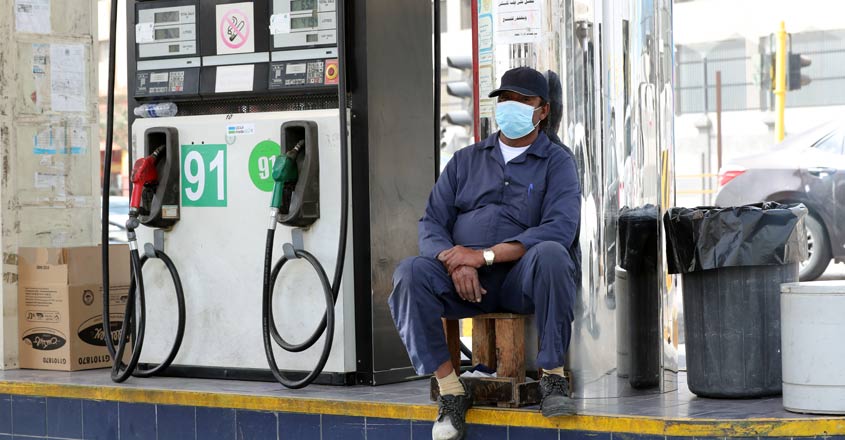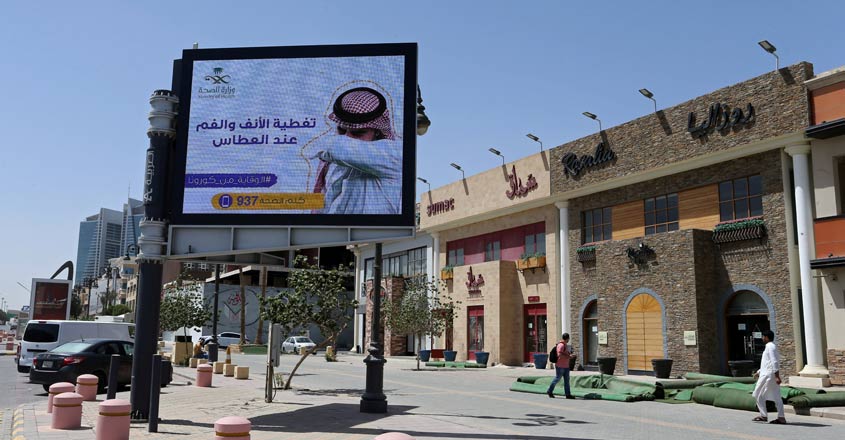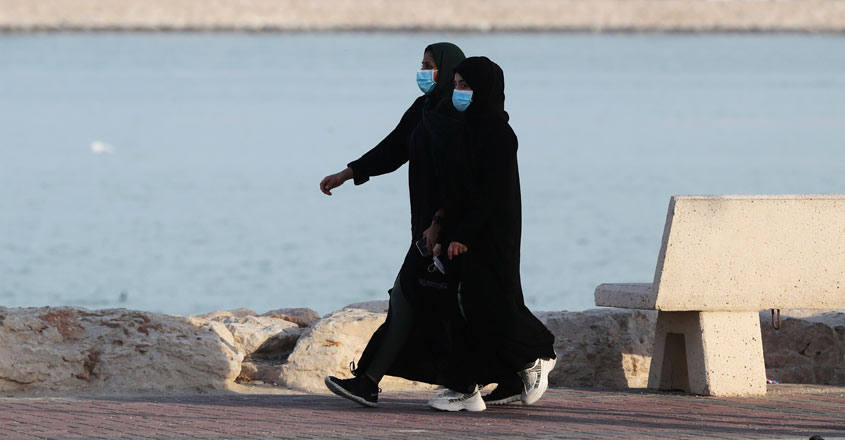UAE blocks non-Emiratis over coronavirus; Saudis cut budget

Mail This Article
- New cases in Saudi Arabia, Kuwait, Qatar and Oman
- Flight and entry restrictions intensify across the Gulf
- Oman urges tourists to leave, central bank announces stimulus
- Iran's coronavirus death toll climbs to 1,135
Riyadh/Dubai: The United Arab Emirates imposed sweeping entry restrictions meant to curb the coronavirus outbreak, barring residents currently outside the country from returning for at least two weeks and pausing issuance of new work permits and visas on arrival.
The UAE, a major international air transit centre and the Gulf region's tourism and business hub, also banned its citizens from going abroad and will require those returning to stay at home for two weeks.
The measures, which took effect on Thursday, are the latest in a series of exceptional moves, including cancelling the Umrah pilgrimage in Saudi Arabia and closing mosques, malls and restaurants across the region.
Saudi Arabia, reporting 67 new infections to bring its total to 238, suspended most private sector activities and cut its state budget by nearly 5%, as the outbreak and low oil prices threaten growth.

Kuwait recorded 12 more cases, pushing total infections in the six-nation Gulf Cooperation Council (GCC) over 1,200.The steering committee of countries participating in Expo 2020, a world fair starting in October that the UAE hopes will boost its economy, met virtually and said it would reassess the situation in coming weeks.
The central bank encouraged residents to bank online and said the sector had not seen "significant pressure".
Saudi Arabia and Kuwait are on virtual lockdown after suspending international flights last week and closing most public venues.
Qatar, with 10 new cases taking its total to 452, the highest in the GCC, has banned entry of foreigners and said 80% of government employees would telecommute.
Oman, which registered six more infections bringing its total to 39, has also prevented foreigners from entering and citizens from going abroad. On Wednesday, it suspended most public transportation.
Saudi suspensions
Saudi Arabia, the largest Arab economy, suspended work in most of the private sector for 15 days and directed businesses to implement work-from-home policies.
It said businesses, except those providing vital food, health or utility services, should close main offices, reduce staff levels at secondary locations, limit employees' contact and monitor them for symptoms of infection. Pregnant women, workers over 55 and those with severe pre-existing conditions must be given 14 days additional leave.
An artificial intelligence summit was postponed to September, while the authorities instructed banks to restrict the number of customers served simultaneously, ensure safe distance between them, check their temperatures and provide sanitizers.

Riyadh municipal officials distributed sanitizer to drivers, while police in several cities patrolled the streets, asking people to leave parks and public spaces, local media reported."Young people, you are banned from being in public rest areas!" police in northern Tabuk province called through loudspeakers, online videos showed.
Earlier this week, the government suspended work for most public sector employees and the central bank implemented work-from-home measures for banks.
The Cabinet halted regular meetings.
Crown Prince Mohammed bin Salman spoke on Wednesday with German Chancellor Angela Merkel about combating the outbreak and an extraordinary virtual meeting of leaders from the Group of 20 major economies which Saudi Arabia is organising next week.
Oman's central bank became the latest to offer a stimulus package to shield the region's hydrocarbon-dependent economies, saying it would provide 8 billion rials ($20.8 billion) in extra
liquidity to banks.
Bahrain evacuates citizens
Many coronavirus cases in the region are linked to travel to Iran, where the death toll has hit 1,135 and the number of infections 17,361.Bahrain, which this week recorded the GCC's first death from
the disease, will evacuate more citizens from the Iranian city of Mashhad with a second repatriation flight scheduled for Thursday, a Bahraini official told Reuters.
He said the flight, using an Omani aircraft, had been delayed a week while quarantine facilities were prepared in Bahrain, where a main isolation centre has been set up on a barren island linked to the capital by a causeway.
Gulf airlines have suspended dozens of routes as contagion disrupts global travel. The UAE, with 113 reported infections, still allows entry of foreign diplomats. Residents and tourists can enter Bahrain, while Qatar and Oman permit transit flights.

Qatar Airways laid off about 200 Filipino staff in Qatar this week, Philippines Labour Secretary Silvestre Bello told Reuters. Dubai-based Emirates said it has asked pilots to take unpaid leave.

